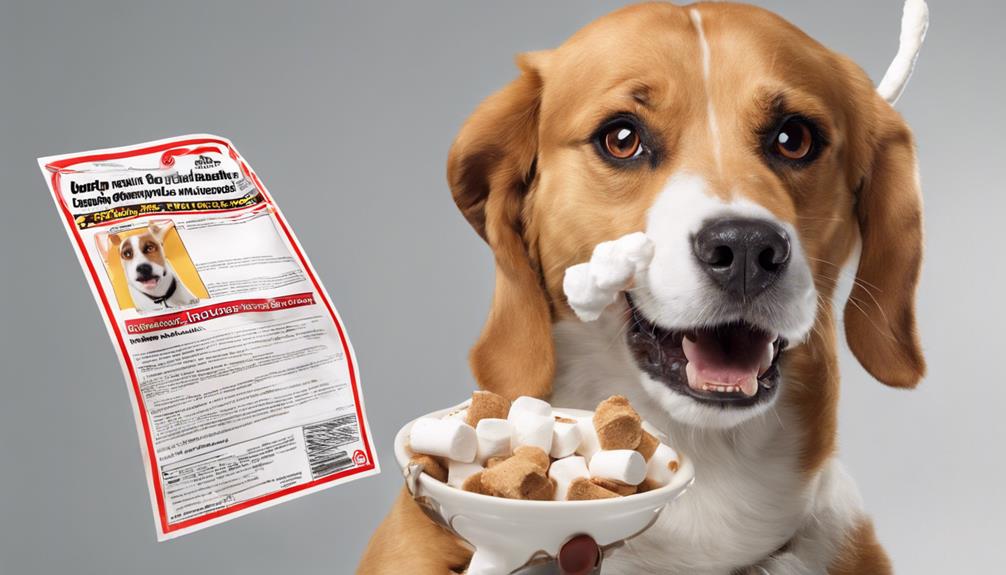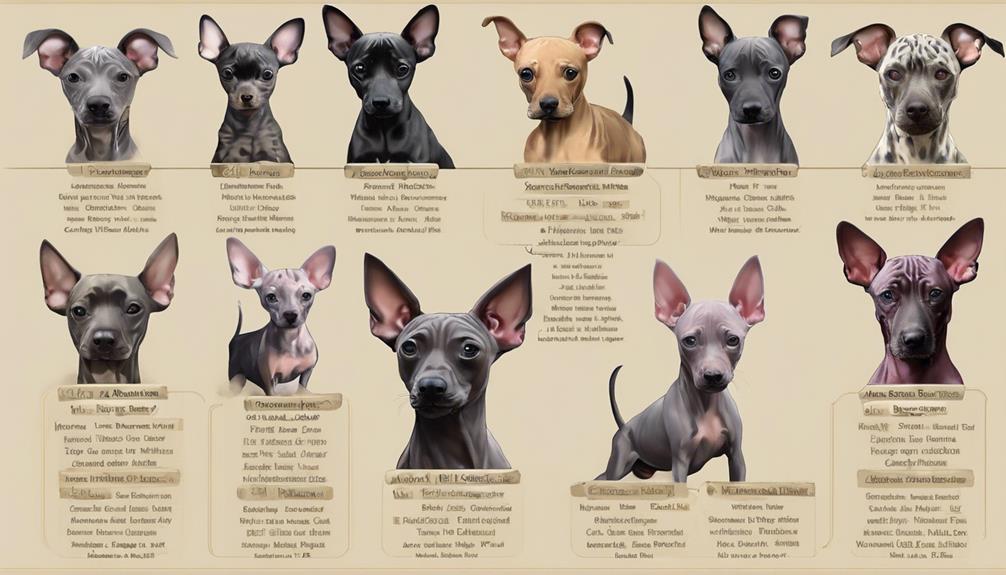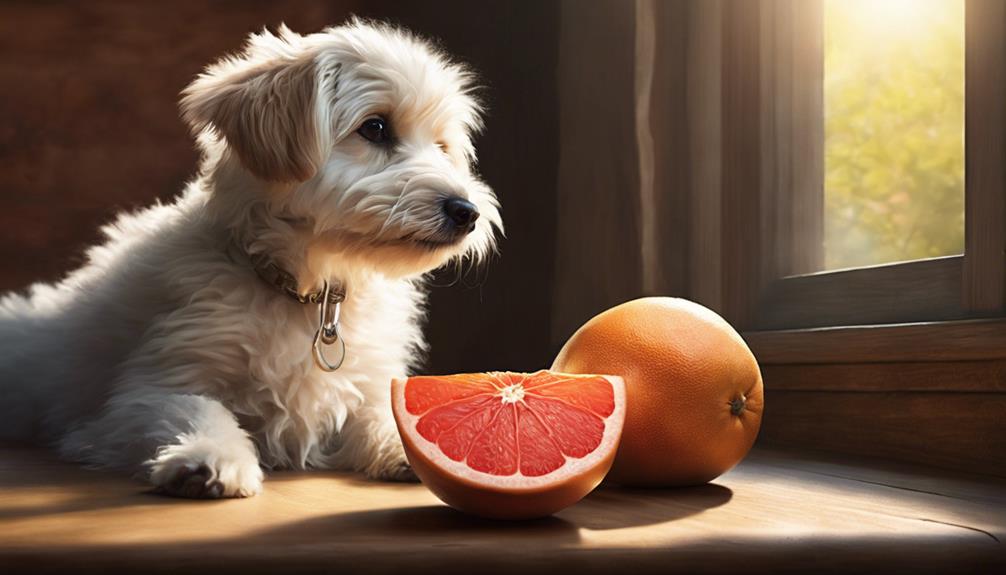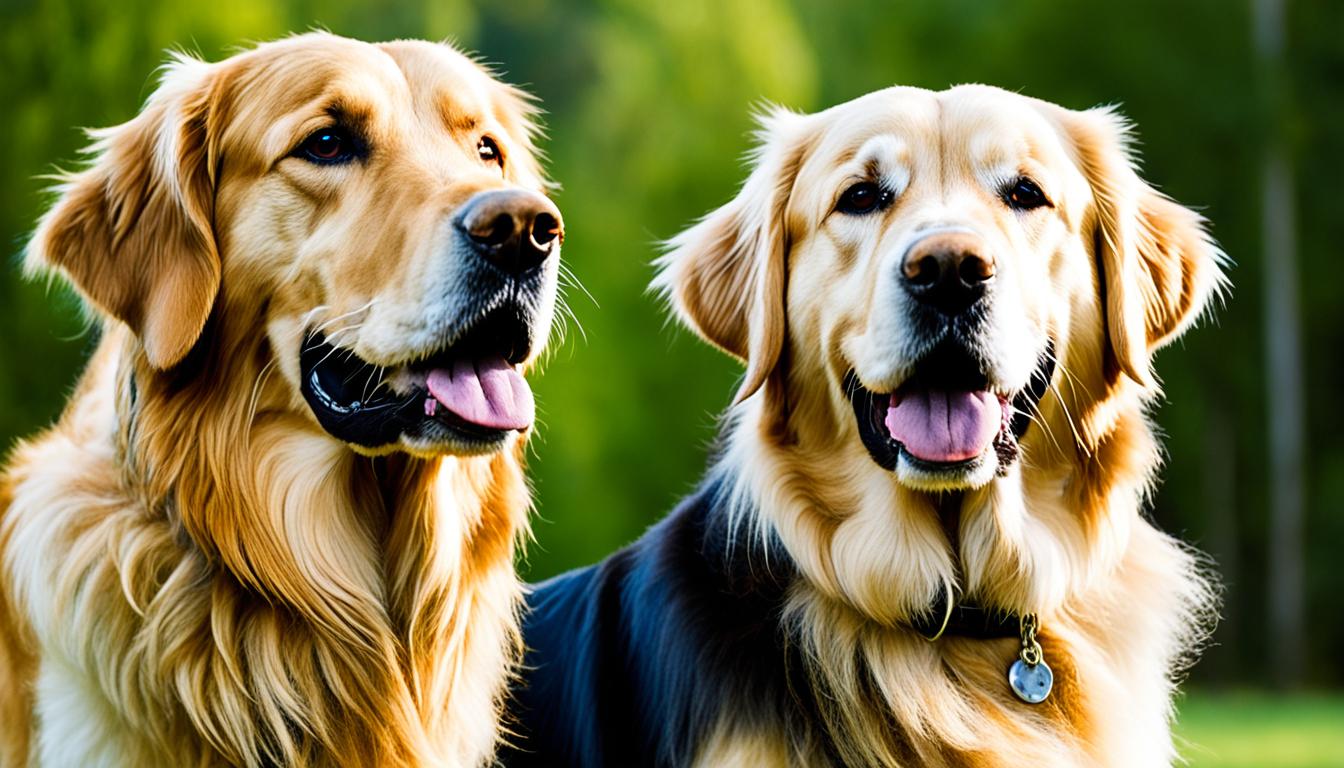Marshmallows can harm dogs due to xylitol causing low blood sugar and liver damage. Symptoms include vomiting, diarrhea, and seizures. The high sugar content can lead to obesity and digestive issues. It's important to monitor your dog after marshmallow consumption for any discomfort and seek vet advice if needed. Learning the safety guide for dogs eating marshmallows is essential for your pet's well-being.
Key Takeaways
- Avoid marshmallows with xylitol to prevent low blood sugar and liver damage.
- Monitor for vomiting, diarrhea, or seizures post-marshmallow consumption.
- Seek vet advice if dogs show discomfort or unusual symptoms.
- Emergency actions include inducing vomiting for large marshmallow ingestion.
- Limit or avoid marshmallows due to high sugar content and health risks.
Potential Dangers of Marshmallows for Dogs
When it comes to dogs consuming marshmallows, the potential dangers can be severe. While these sugary treats might seem harmless, they can actually pose a significant risk to our furry friends' health. One of the main concerns is xylitol, a sugar substitute often found in marshmallows, which can cause low blood sugar and liver damage in dogs. Symptoms such as vomiting, diarrhea, and even seizures may occur if a dog ingests xylitol.
However, even marshmallows without xylitol can be harmful to dogs. The high sugar content in regular marshmallows can lead to obesity and digestive issues over time. It's important to monitor our dogs for any signs of discomfort after they've eaten marshmallows. If symptoms persist or worsen, seeking advice from a vet immediately for proper guidance and treatment is crucial. Remember, our dogs rely on us to keep them safe and healthy, so being aware of the potential dangers of marshmallows is vital for their well-being.
Toxic Ingredients in Marshmallows

Toxic ingredients in marshmallows, particularly xylitol, pose a significant threat to the health of dogs. Xylitol is highly toxic to dogs, causing issues like xylitol poisoning, which can lead to a rapid drop in blood sugar levels and liver damage even in small amounts. To emphasize the danger, let's look at a comparison between sugar-free and regular marshmallows:
| Aspect | Sugar-Free Marshmallows | Regular Marshmallows |
|---|---|---|
| Xylitol Content | High (toxic to dogs) | None |
| Sugar Content | Low | High |
| Safety | Toxic to dogs | High sugar content poses risks |
It's essential for dog owners to be aware of these differences and avoid marshmallows with xylitol entirely. Even regular marshmallows should be limited due to their high sugar content, which can also be harmful to dogs. Remember, always prioritize your furry friend's safety and well-being by steering clear of marshmallows when it comes to treating your pet.
Symptoms of Marshmallow Ingestion in Dogs

Following the ingestion of marshmallows, dogs may exhibit symptoms such as vomiting and diarrhea. These signs could indicate that your dog's digestive system is reacting to the sugary treat.
Additionally, lack of appetite might be observed, suggesting that the marshmallows are causing some discomfort or distress in your furry friend. If the marshmallows contain xylitol, a sugar substitute toxic to dogs, the symptoms can escalate to more severe issues like seizures, which require immediate veterinary attention.
It's important to monitor your dog for any distress or unusual behavior after consuming marshmallows. If you notice any concerning symptoms, such as persistent vomiting, diarrhea, or lethargy, it's essential to consult a veterinarian promptly. Remember, your dog's health and well-being should always be a top priority, so never hesitate to seek professional help if you have any doubts or worries about their condition after ingesting marshmallows.
Emergency Actions for Dogs Eating Marshmallows
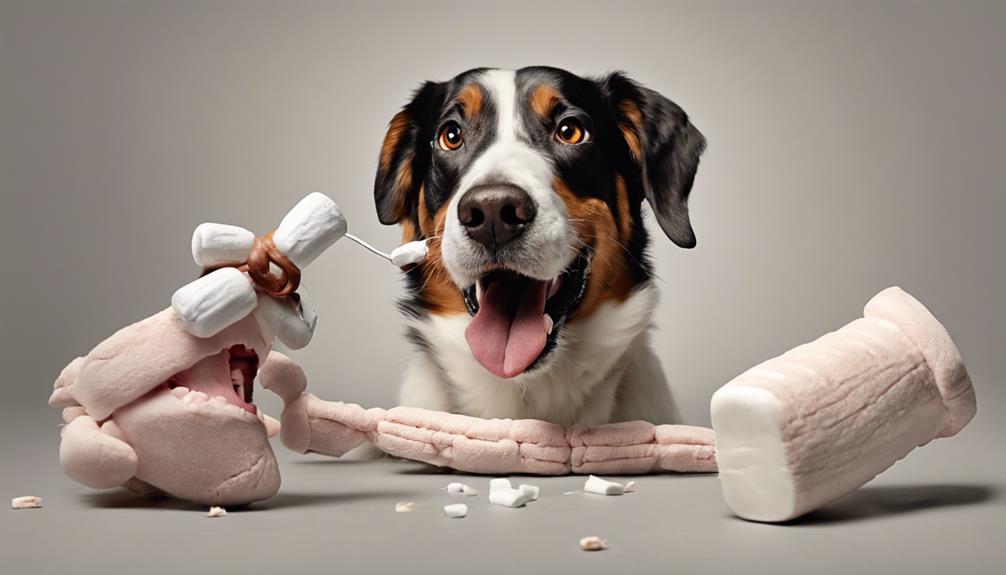
After observing symptoms like vomiting, diarrhea, or lethargy in your dog post-marshmallow consumption, immediate action may be necessary to address any potential health risks.
If you suspect your dog has ingested xylitol-containing marshmallows, contacting a vet right away is vital, as xylitol can be extremely toxic to dogs.
In cases where your dog has consumed a large quantity of marshmallows, inducing vomiting may be necessary to prevent further absorption of harmful ingredients.
Seeking immediate veterinary care if your furry friend shows any signs of distress after consuming marshmallows is crucial.
Remember, in emergency situations like these, professional advice from a veterinarian is invaluable in ensuring the best outcome for your pet's health.
Always prioritize your dog's well-being and act promptly to address any concerns that may arise from marshmallow ingestion.
Health Risks Associated With Marshmallows

Marshmallows pose several health risks to dogs, including concerns about sugar content, a potential choking hazard, and the risk of xylitol toxicity.
The high sugar levels in marshmallows can lead to obesity and diabetes in dogs, while their sticky texture can present a choking risk.
Additionally, some marshmallows may contain xylitol, a substance that's toxic to dogs and can result in severe health issues.
Sugar Content Concerns
Considering the detrimental effects of high sugar levels, it's important to understand the health risks associated with dogs consuming marshmallows.
Marshmallows, with their high sugar content, can contribute to obesity and diabetes in dogs. Excessive sugar intake from marshmallows may lead to dental issues and digestive problems. Since dogs don't require added sugar in their diets, marshmallows are an unnecessary and potentially harmful treat for them.
Regular consumption of sugary marshmallows can increase the risk of health issues like pancreatitis in dogs. To maintain your dog's overall health and well-being, it's advisable to limit or avoid feeding them marshmallows altogether.
Prioritizing a balanced and appropriate diet for your furry friend is essential in preventing these sugar-related health concerns.
Choking Hazard Alert
With the high risk of choking hazards associated with marshmallows, pet owners must be vigilant in monitoring their dogs' consumption to prevent potential health emergencies. Dogs can easily choke on marshmallows, especially if they try to swallow them whole due to their sticky, chewy texture. This can lead to breathing difficulties, discomfort, or even life-threatening situations.
To prevent choking incidents, consider cutting marshmallows into smaller pieces or avoiding them altogether. Supervising your dogs while they're eating marshmallows is essential to intervene promptly in case of any choking accidents. Remember, a little precaution can go a long way in ensuring your furry friend's safety and well-being.
Xylitol Toxicity Risk
Monitoring your dog's marshmallow consumption is essential due to the significant health risks posed by xylitol, a substance that can cause rapid drops in blood sugar levels and liver damage in dogs. Xylitol is toxic to dogs even in small amounts, potentially leading to severe symptoms such as seizures and coma.
If your dog ingests marshmallows containing xylitol, immediate veterinary attention is vital. Remember to carefully check ingredient labels for xylitol to prevent any potential health risks to your furry friend.
Being aware of the dangers associated with xylitol in marshmallows can help you protect your dog's well-being and make sure they stay safe and healthy.
Preventing Marshmallow Consumption in Dogs
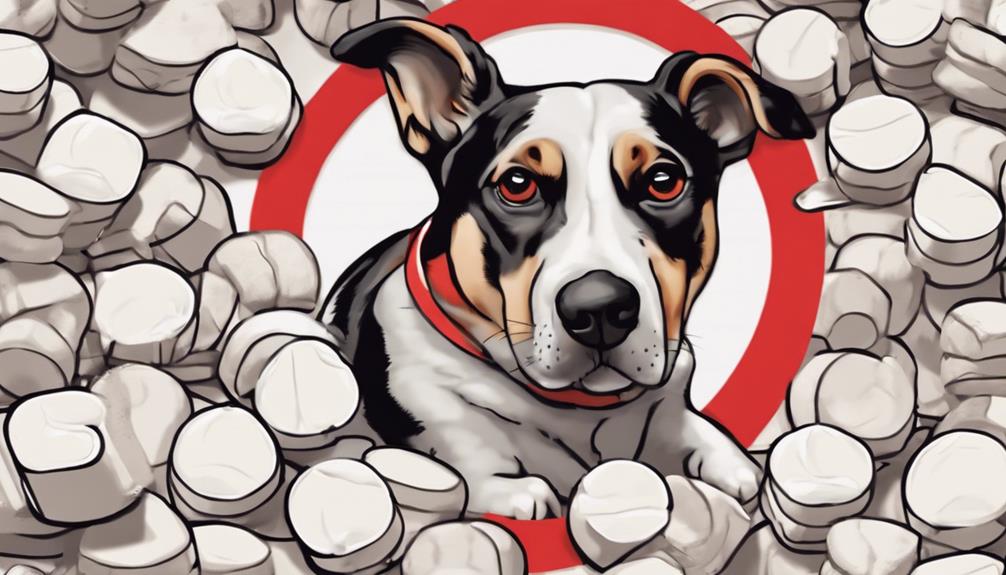
To protect your dog's health, make sure marshmallows are stored securely out of their reach. Dogs eat almost anything they find, so it's vital to prevent access to these sugary treats.
Educate children in the household about the risks of sharing marshmallows with pets. Supervise the environment to guarantee dogs can't accidentally ingest marshmallows left within reach. Responsible storage and handling practices play a significant role in keeping your furry friend safe.
By keeping marshmallows out of reach, you can avoid potential health risks for your dog. Remember, prevention is key when it comes to protecting your pet from harmful foods. So, store marshmallows in sealed containers or high shelves to eliminate any chance of your dog getting hold of them.
Stay vigilant and take the necessary steps to safeguard your dog's well-being.
Marshmallows and Canine Obesity
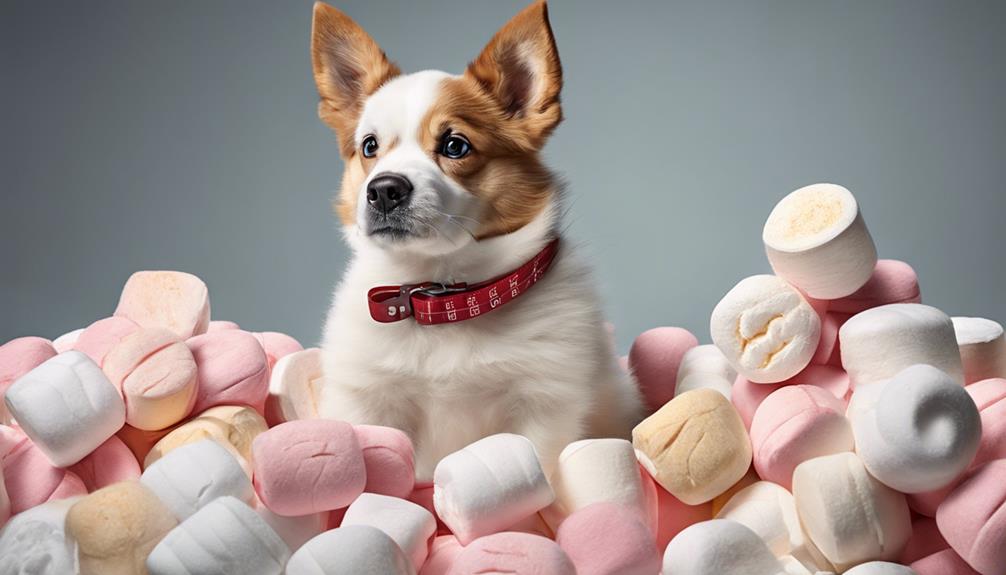
As our canine companions are susceptible to obesity, the high sugar and calorie content in marshmallows can greatly contribute to weight gain in dogs. Excessive consumption of these high-sugar treats can lead to obesity, which in turn can result in various health issues for your pet, such as diabetes, joint problems, and a decreased lifespan.
Monitoring your dog's treat intake, including marshmallows, is important to prevent obesity and maintain their overall health. Limiting the amount of high-sugar treats like marshmallows in your dog's diet can help control their weight and reduce the risk of obesity-related complications.
Marshmallows and Digestive Issues in Dogs
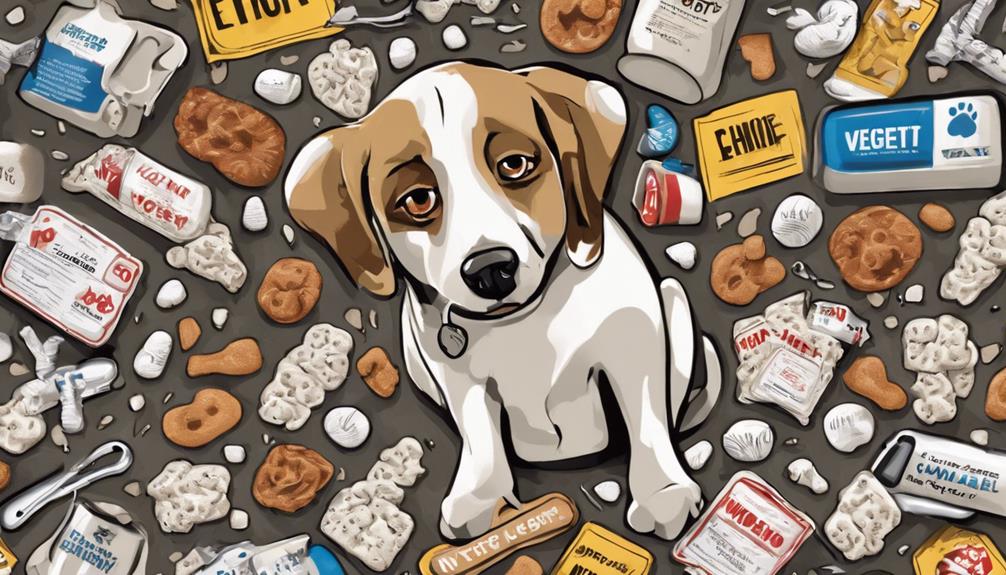
Marshmallows can lead to digestive problems in dogs, such as vomiting and diarrhea due to their high sugar content.
If your dog consumes marshmallows, be on the lookout for signs of stomach upset and discomfort.
Remember to consult a vet if your dog continues to have digestive issues after eating marshmallows.
Digestive Risks in Dogs
Consuming marshmallows can pose digestive risks for dogs, potentially leading to symptoms such as vomiting and diarrhea. When it comes to dogs and marshmallows, it's crucial to be aware of the following risks:
- Marshmallows containing xylitol can be extremely toxic to dogs.
- The high sugar content in marshmallows can cause stomach upset in dogs.
- Excessive consumption of marshmallows may result in digestive blockages for your furry friend.
- Monitor your dog closely for any signs of digestive distress if they've ingested marshmallows. If you notice any symptoms, such as vomiting or diarrhea, it's essential to seek guidance from a veterinarian promptly.
Marshmallows and Stomach Upset
To avoid stomach upset in dogs, it's important to be mindful of the high sugar and fat content present in marshmallows. When dogs consume marshmallows, they may experience digestive issues such as vomiting and diarrhea. These symptoms can be distressing for your furry friend and indicate a potential problem.
Excessive consumption of marshmallows can even lead to digestive blockage, which requires immediate veterinary attention. Dogs with sensitive stomachs or specific dietary restrictions should steer clear of marshmallows altogether to prevent digestive upset.
Always keep an eye on your dog after they've had marshmallows and watch for any signs of discomfort. If you notice any digestive issues, seek prompt veterinary care to safeguard your dog's well-being.
Canine Digestion and Marshmallows
In relation to dogs and marshmallows, gastrointestinal distress, such as vomiting and diarrhea, can occur. When a dog eats marshmallows, the high sugar content can lead to digestive upset. Marshmallows that don't contain xylitol are less likely to cause severe digestive issues in dogs. It's important to monitor your dog for signs of digestive distress if they've consumed marshmallows. If your dog shows persistent digestive issues after eating marshmallows, consult a veterinarian promptly.
- Gastrointestinal distress, like vomiting and diarrhea, may occur.
- High sugar content in marshmallows can cause digestive upset.
- Marshmallows without xylitol are less likely to lead to severe issues.
- Consult a veterinarian if your dog experiences persistent digestive problems.
Marshmallows Vs. Nutritious Dog Treats
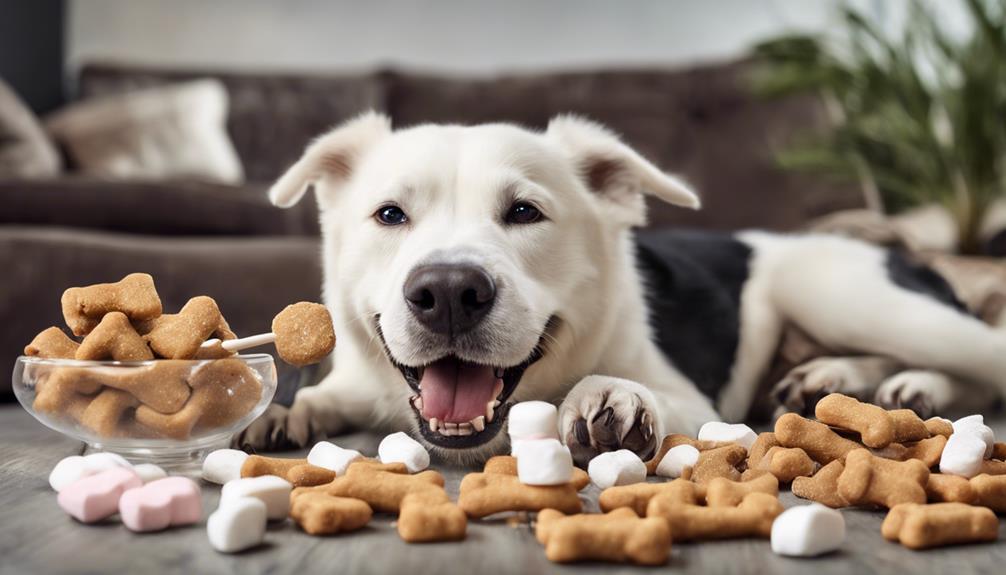
Spoiling your furry companion with healthy dog treats instead of marshmallows guarantees they get necessary vitamins and minerals for peak health. Nutritious dog treats like carrots, blueberries, and apples offer essential nutrients that support your dog's overall well-being. Unlike marshmallows, which lack nutritional value and can lead to health issues, these treats provide better nutritional value for your pet.
Regular consumption of nutritious treats can help prevent obesity and promote a healthy weight in dogs. Opting for dog-friendly treats over marshmallows ensures that your pet receives the necessary vitamins and minerals they need to thrive.
When a dog shows symptoms of having ingested marshmallows containing xylitol, it's important to consult a veterinarian immediately, as xylitol can cause serious health issues in dogs. Choosing nutritious dog treats over marshmallows without harmful ingredients is vital for your pet's health and happiness.
Consulting a Veterinarian for Marshmallow Concerns
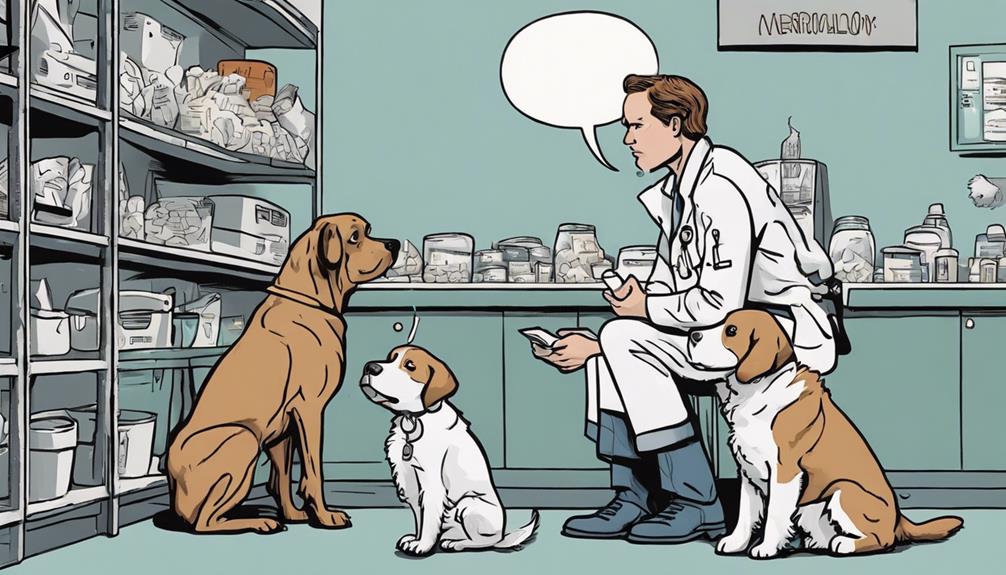
When your dog eats marshmallows, contacting a veterinarian is vital.
Vets can offer valuable advice on marshmallow safety for your furry friend.
It's essential to inform them about any risks or concerns related to your dog's marshmallow consumption.
Vets Marshmallow Safety Advice
If your dog has consumed marshmallows, seeking advice from a veterinarian is vital to ensure their well-being. Here are some reasons why consulting a vet for marshmallow-related concerns is essential:
- Health Risks: Vets advise against feeding marshmallows to dogs due to potential risks.
- Xylitol Danger: Marshmallows containing xylitol can be harmful to dogs, requiring immediate professional advice.
- Symptom Monitoring: Vets can guide you on how to monitor your dog for any adverse effects after ingesting marshmallows.
- Tailored Recommendations: Professional advice from a veterinarian is recommended for tailored guidance on your dog's well-being post-marshmallow consumption.
Benefits of Vet Consultation
After seeking advice from a veterinarian for marshmallow-related concerns, dog owners can gain valuable insights into their pet's well-being and potential risks. Vet consultation provides essential advice based on individual health factors, helping determine the severity of marshmallow ingestion and necessary actions.
Vets assess potential risks, symptoms, and treatment options related to marshmallow consumption in dogs. Professional guidance can prevent complications, ensuring the well-being of your furry friend. Vets offer insight on the impact of marshmallows on overall health and provide appropriate recommendations.
Consulting a veterinarian is vital for addressing any concerns promptly and effectively, safeguarding your dog's health and happiness. Trusting in vet expertise can lead to informed decisions and proactive care for your beloved pet.
Risks to Inform Vet
To guarantee thorough care for your dog's well-being, promptly notify the veterinarian of any marshmallow consumption incidents, especially if xylitol was involved. Marshmallows don't contain harmful ingredients, but the sweetener xylitol can pose serious health risks to pets.
When informing the vet, provide details on the quantity and type of marshmallows ingested, any symptoms or changes in behavior observed post-consumption, and mention any pre-existing health conditions or allergies your dog may have.
Following the vet's advice on monitoring, treatment, and next steps after marshmallow ingestion is essential for safeguarding your pet's health. Remember, quick action and clear communication with the veterinarian can help secure the best possible outcome for your furry friend.
Frequently Asked Questions
What Should I Do if My Dog Ate Marshmallows?
If your dog ate marshmallows, monitor for symptoms like vomiting, diarrhea, or lethargy. Check the ingredient list for harmful substances like xylitol or chocolate.
Contact your vet or Pet Poison Helpline if concerned. Seek vet care if xylitol is present.
Watch for signs of digestive upset and act promptly if needed. Stay vigilant and prioritize your dog's health and well-being.
Are Jet Puffed Marshmallows Safe for Dogs?
Jet Puffed Marshmallows are safe for dogs in moderation. They don't contain xylitol, a harmful ingredient for dogs. However, these treats lack nutritional value, so it's best to offer them sparingly. Watch for any digestive issues after your dog eats them.
Overindulging can lead to obesity and dental problems. Enjoying Jet Puffed Marshmallows occasionally can be a fun treat for your furry friend.
Can Dogs Eat Campfire Marshmallows?
Yes, dogs can eat campfire marshmallows in moderation. While campfire marshmallows are generally safe for dogs, it's important to check the ingredients for harmful additives like xylitol. If the marshmallows contain xylitol, they can be toxic to dogs.
Always monitor your dog for any signs of digestive upset after they consume campfire marshmallows. Remember, moderation is key when treating your furry friend to these sweet snacks.
Can Dogs Have Marshmallows Pills?
We can use marshmallows as pill pockets for dogs to help with medication. The sticky interior makes it easier to hide pills. However, we should limit marshmallows to prevent too much sugar. Moderation is key to avoid health issues.
Always talk to a vet before using marshmallows for this purpose. Remember, our furry friends' health comes first!
Can Dogs Eat Lemons if they can eat Marshmallows Safely?
While dogs eating lemons safety is a concern, it’s best to avoid giving them lemons altogether. The citrus can cause stomach upset and even be toxic to dogs. Marshmallows, on the other hand, can be given as an occasional treat in small amounts, but they are high in sugar and should be given sparingly.
Conclusion
To sum up, remember that marshmallows can be a risky treat for your furry friend. Stick to nutritious dog treats to keep them healthy and happy.
When in doubt, consult with your veterinarian for guidance. Keep your pup safe and avoid potential dangers lurking in those fluffy little snacks.
Stay vigilant and watch out for your four-legged companion's well-being. Your dog will thank you for it!
